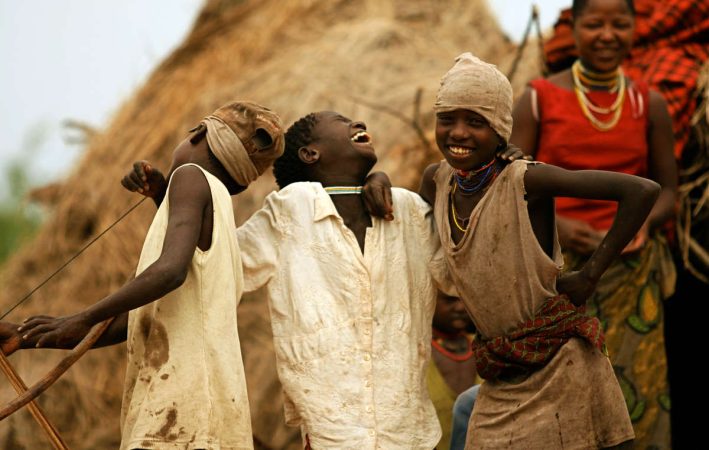- Arusha
- info@naturebaysafari.com
- +255 621 837 693
Hadzabe
Overview
The Hadzabe (also spelled Hadza) are a small indigenous ethnic group in Tanzania, primarily living around Lake Eyasi in the central Rift Valley. They are one of the last surviving hunter-gatherer societies in the world, maintaining a traditional way of life that has remained largely unchanged for thousands of years.
- Population & Location
- The Hadzabe number approximately 1,200–1,500 people today.
- They primarily inhabit the bushlands of Lake Eyasi, located near the Serengeti National Park and the Ngorongoro Conservation Area in northern Tanzania.
- Their territory is semi-arid, consisting of savannas, dry woodlands, and rocky hills.
- Language
- They speak Hadzane, a unique click language, which is unrelated to any other language in East Africa.
- Click sounds in Hadzane resemble those in Khoisan languages spoken by the San (Bushmen) in Southern Africa, but the two groups are not closely related.
- Hadzane is an oral language with no written script.
- Traditional Lifestyle
- Hunting & Gathering
- The Hadzabe are nomadic hunter-gatherers who do not practice farming or animal husbandry.
- Men are responsible for hunting wild animals using bows and poison-tipped arrows. They target antelopes, warthogs, baboons, birds, and even honey badgers.
- Women gather wild fruits, tubers, berries, and honey, which form the majority of their diet.
- They use their deep knowledge of animal tracks, plants, and weather patterns to survive.
- Housing & Settlements
- The Hadzabe live in temporary grass huts or sleep under rock shelters.
- They move frequently to find new food sources, meaning their settlements are not permanent.
- Unlike many African tribes, they do not build fences or create villages.
- Clothing & Ornaments
- Traditionally, Hadzabe men wear animal skins or simple cloth wraps, while women wear skirts made from tree bark or fabric.
- They do not wear elaborate jewelry or decorations like other Tanzanian tribes.
- Social Structure & Gender Roles
- Hadzabe society is egalitarian, meaning there are no chiefs or formal leaders.
- Decisions are made collectively, and wealth is not accumulated—everyone shares food and resources.
- Men and women have equal status, though their roles are different.
- Religion & Spiritual Beliefs
- The Hadzabe do not follow an organized religion but believe in a spiritual connection with nature.
- They honor spirits of ancestors and have rituals linked to hunting, life, and death.
- Rain, animals, and the sun play an important role in their spiritual beliefs.
- Modern Challenges & Threats
- Land Encroachment & Loss of Territory
- Over the years, farmers, herders, and commercial companies have taken much of the Hadzabe’s traditional land.
- Deforestation, tourism, and climate change are also threatening their way of life.
- Cultural Assimilation
- Some Hadzabe have been influenced by modernization, with younger generations moving to towns or adopting farming practices.
- Government policies have at times encouraged them to abandon their traditional lifestyle.
- Tourism & Economic Struggles
- The Hadzabe have attracted cultural tourism, with visitors experiencing their hunting and gathering lifestyle.
- While this provides some income, it also exposes them to outside influences that may alter their traditions.
- Efforts to Protect the Hadzabe
- Conservation organizations and local authorities have worked to secure land rights for the Hadzabe to protect their way of life.
- Some Hadzabe groups are now involved in eco-tourism projects, allowing them to benefit financially while maintaining their traditions.
- Education programs are helping Hadzabe children gain access to schooling while respecting their cultural heritage.
- Visiting the Hadzabe
- Tourists can visit Hadzabe communities near Lake Eyasi for an immersive cultural experience.
- Activities include:
- Learning how they hunt and make fire without matches.
- Participating in traditional dances and songs.
- Observing their way of life in the bush.
- Visits should be responsible and respectful, ensuring that tourism benefits the Hadzabe rather than exploiting them.







